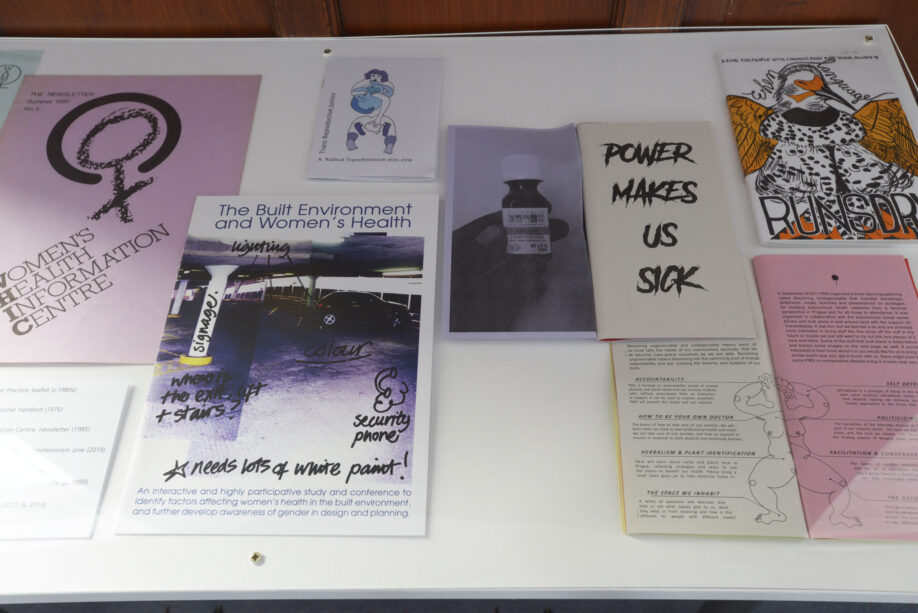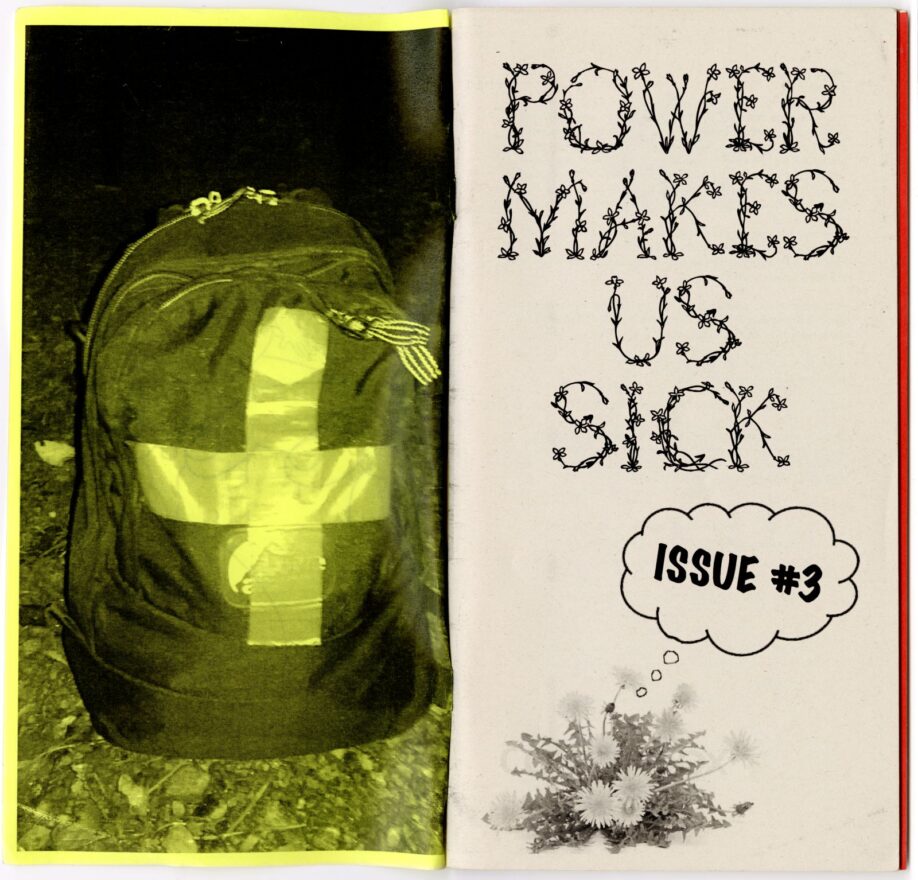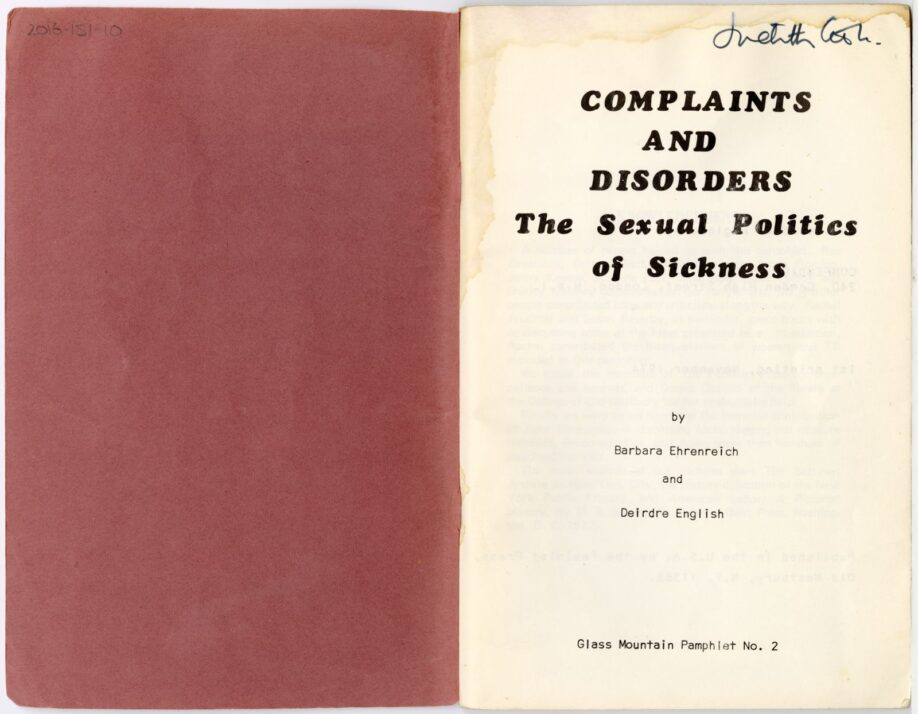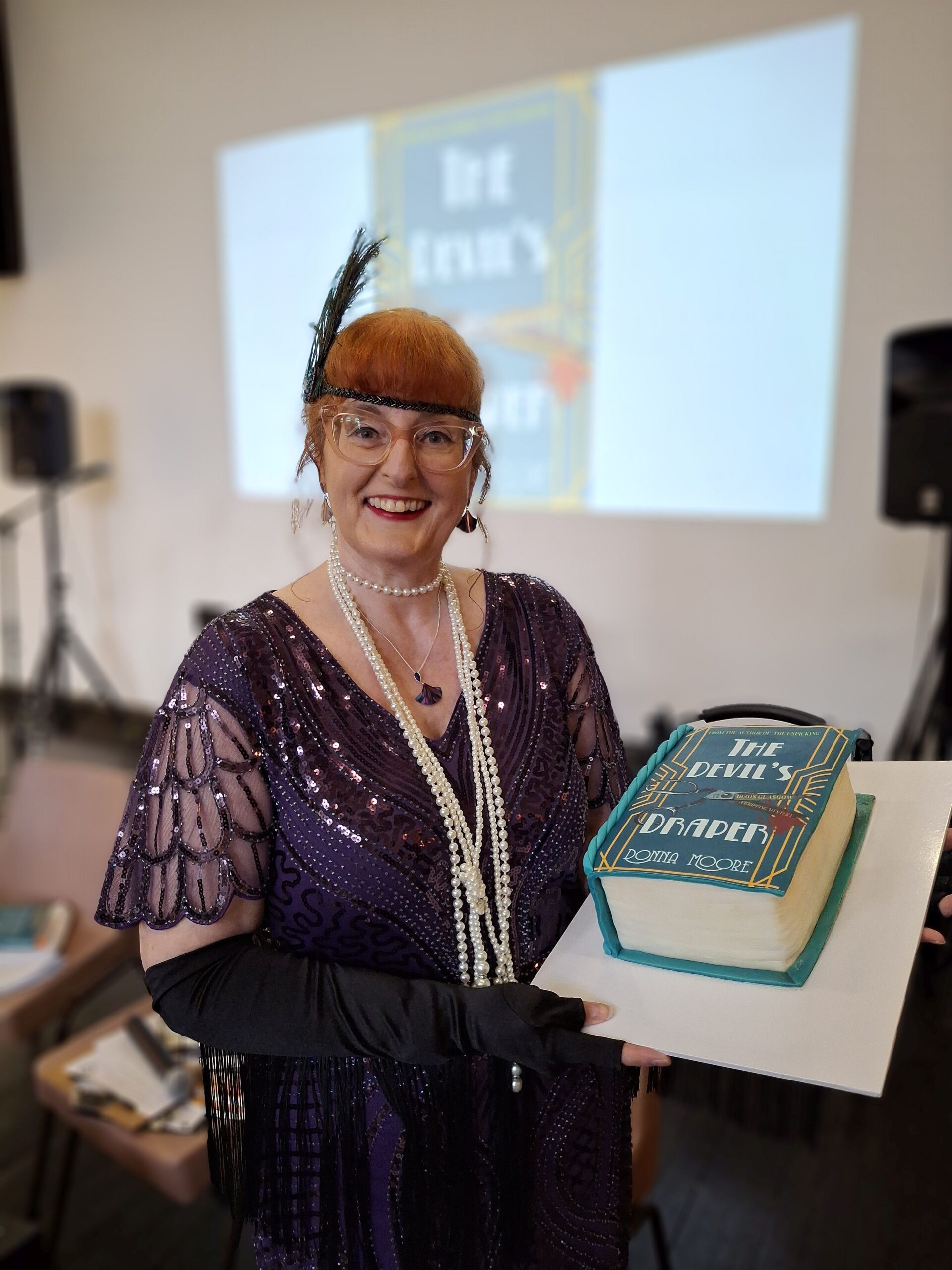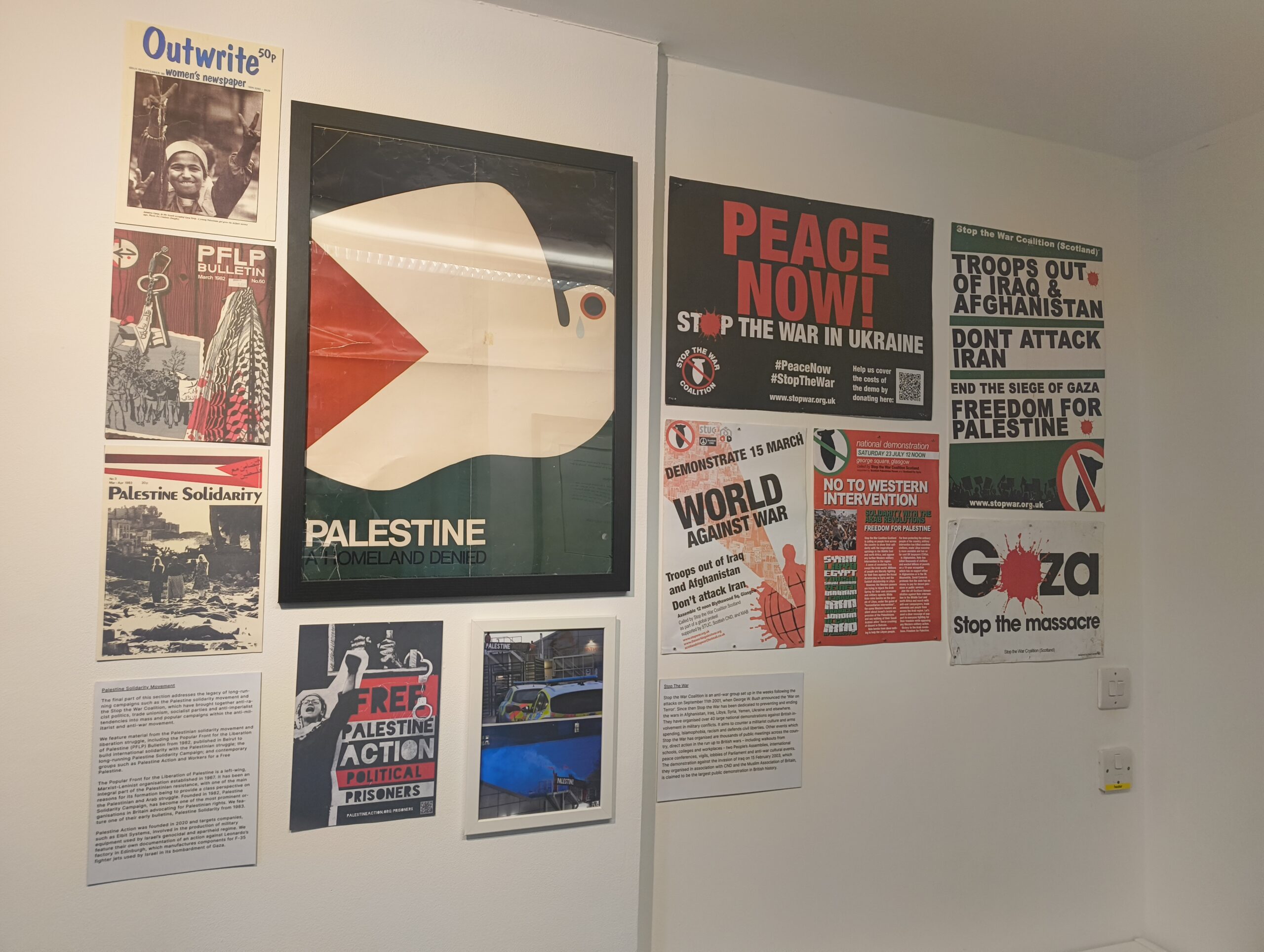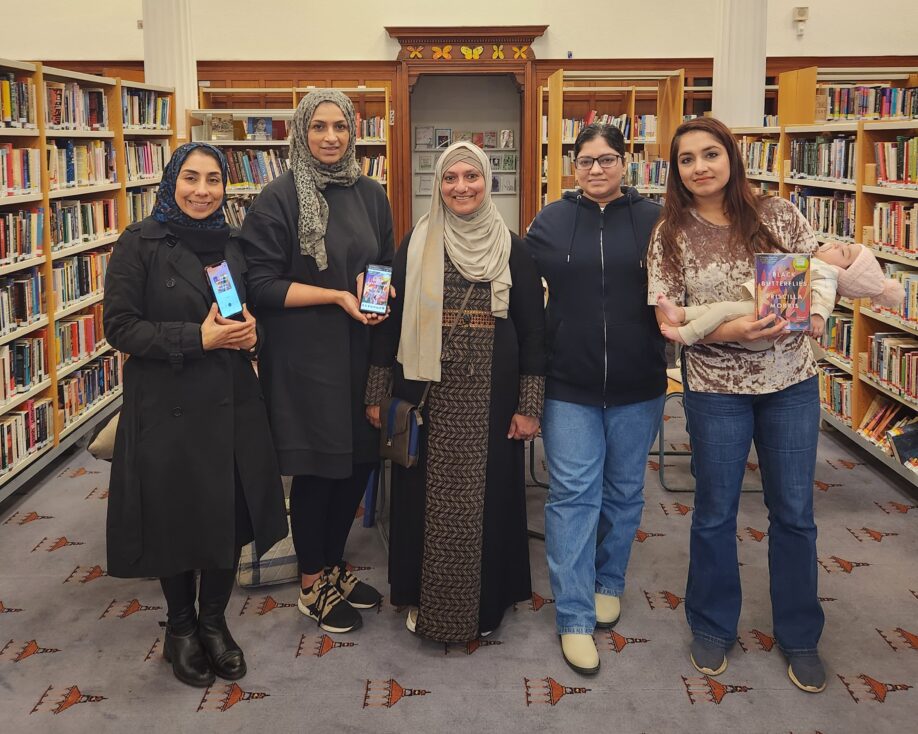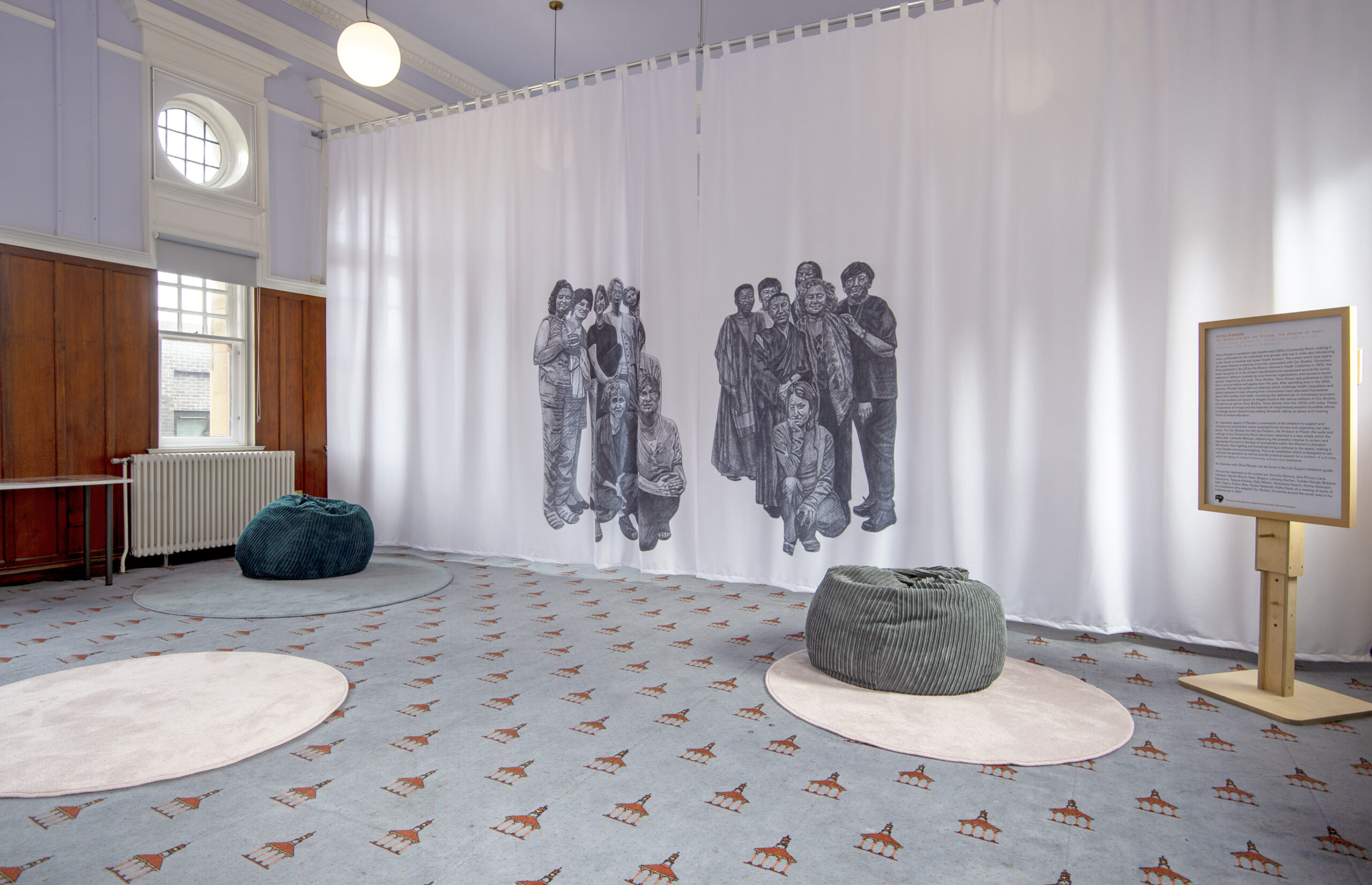
Our bodies are not the problem, power is the problem, by Olivia Plender, in Life Support: Forms of Care in Art and Activism, 2021.
Life Support: Forms of Care in Art and Activism (an exhibition in GWL from Aug – October 2021 and ongoing collaborations) considers how artists and activists have addressed and challenged experiences of care, health, education, housing and home life. With artworks, archival materials and installations displayed throughout the building and beyond, we focus on feminist, LGBTQ+ and anti-racist responses to existing systems. Realised during the Covid-19 pandemic, the exhibition highlights the urgent need for mutual care and support across the infrastructures and relationships that shape our everyday lives.
This online exhibition represents the portion of Life Support by Artist Olivia Plender, who was commissioned for this project by GWL.
This collection consists of a display of materials pulled from our archive and curated by Olivia Plender as part of her research. Additionally, Plender did a long-lasting transformation of the GWL Community Room inspired by feminist and queer health activism to create a more comfortable space that will help nurture community, activism and resistance.
Olivia Plender is a multidisciplinary artist whose work seeks to make visible the sophisticated techniques of care, collaborative methods and forms of feminist pedagogy that have been developed and practised by feminist groups, especially in women’s spaces and activist organisations.
Jordan Alice Fyfe is a PhD intern who created this online exhibition in 2024. She shares her interpretation of the materials alongside Olivia’s. Read more about Jordan’s experience at the Library on her blog here.
Connected Posts
Our Bodies Are Not the Problem, the Problem Is Power
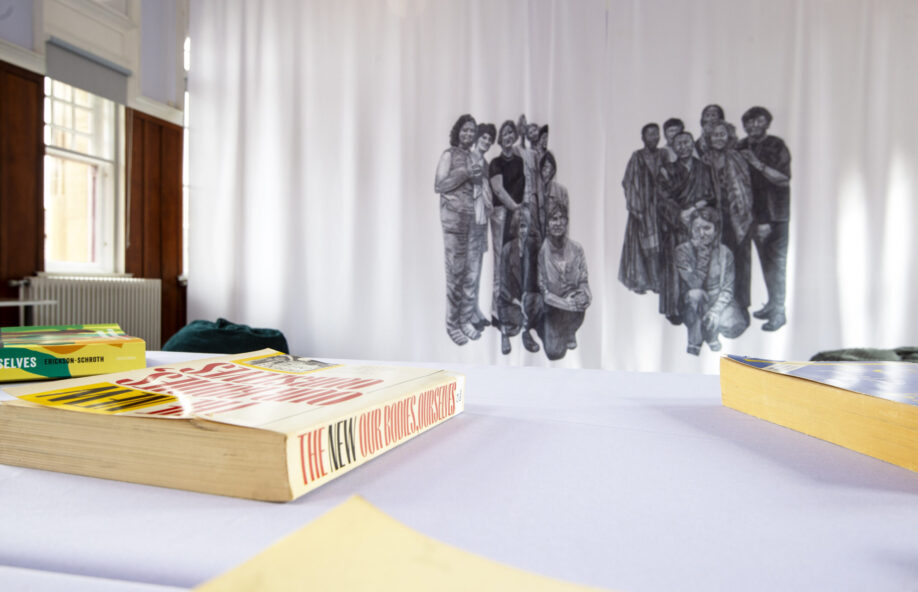
Print on Curtain and Interior Installation by Olivia Plender. Olivia Plender’s installation has transformed GWL’s community room, making it more comfortable for the people who use it, while also introducing a new focus on feminist and queer health activism.
Jordan’s Thoughts:
I used this space as a participant in a Book Picnic before I fully understood the work that had been done to the space by Plender. I felt that it was a cosy space, and the big curtain gives the space a slight movement that makes it feel like it’s softly living. Although I didn’t know who the women depicted were, I felt that these were important folk, and that this was the kind of place that celebrated women.
Other than the curtain, it’s not hugely obvious the work that was done. I think this is one of the beautiful things about it. It doesn’t shout ART PROJECT, but rather gently holds you in a bright, warm, and caring space.
Now that I’ve used the space with more knowledge of the project (and seen the before and afters), I see how much care was put into each intentional decision, from the colour of the walls, to the softness of the space.
A Zine for People with Chronic Pain and their Allies
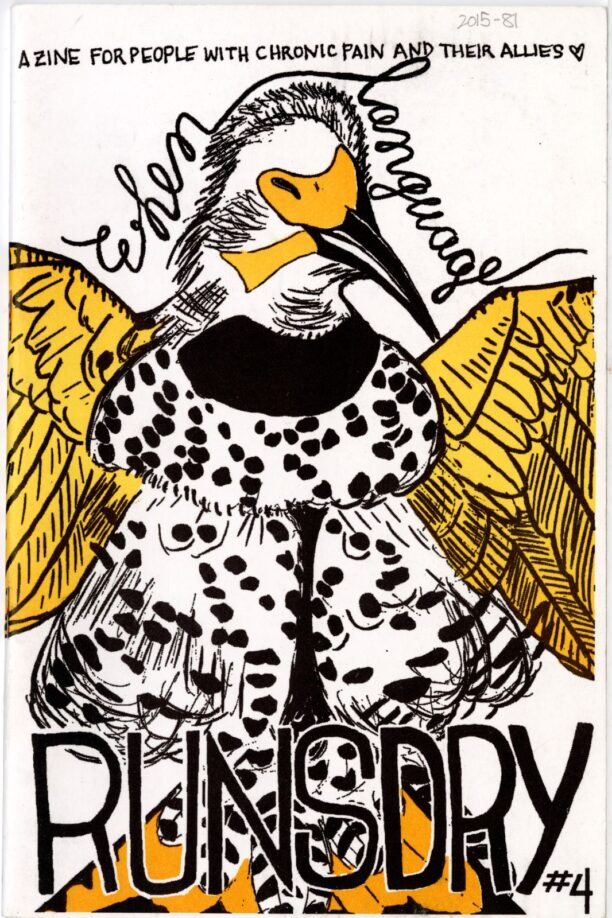
A Zine containing prose and poems written by people with chronic pain.
Olivia’s Thoughts
I wanted to include some material that represents health practices that are self organised. It also represents how people with chronic illness and disability can connect to each other and create solidarity, organise politically, as illness can be very isolating. Chronic pain is a feminist issue as it is more commonly suffered by women than men and is often dismissed by doctors as ‘all in your head’
Jordan’s Thoughts
As someone who has chronic pain, I found this zine very moving.
It’s sometimes very hard for me to find imagery and words that I can really relate to, but this was filled with pieces that spoke to me. The poem and image below so simply capture my feelings about being open about my pain, and feeling like my body is falling apart.
I think that it is very valuable to have extremely niche publications that speak to a small collection of people, as those people often feel isolated and under represented in the mainstream media. This is why Zines exist.
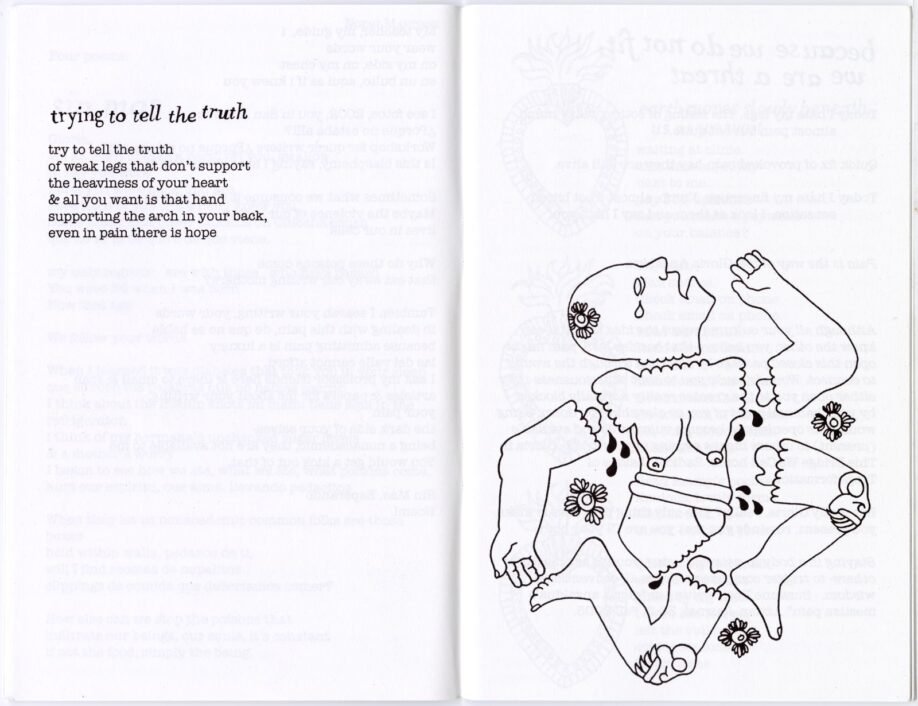
Women and Medical Practice
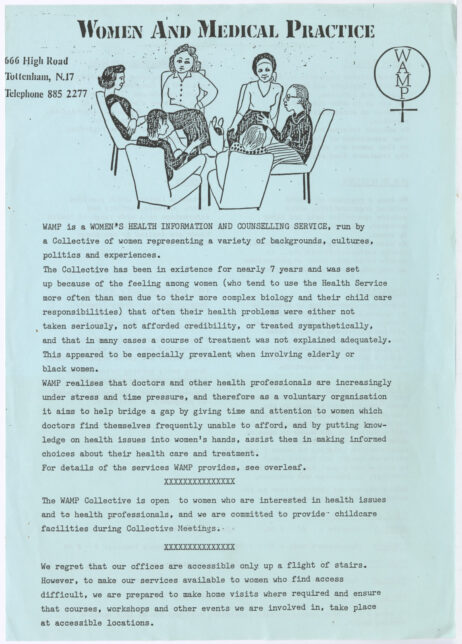
A single page flyer about WAMP, a Women's Health Information and Counselling Service in Tottenham.
Olivia’s Thoughts:
I like the cartoon here. It’s an image of women sitting in a circle, which is such a classic feminist formation: self-organised and equal.
Jordan’s Thoughts:
This service “was set up because of the feeling among women (who tend to use the Health Service more often than men due to their more complex biology and their child care responsibilities) that often their health problems were either not taken seriously, not afforded credibility, or treated sympathetically, and that in many cases a course of treatment was not explained adequately. This appears to be especially prevlent when involving elderly or black women.”
This statement echos sentiments I heard very recently when transcribing Olivia Plender’s Our Bodies are Not the Problem workshops that she ran to follow on from the Life Support project. It seems that women are still experiencing these issues decades late. This flyer is undated, however a brief dive into the history of phone numbers leads me to believe it’s from 90s or earlier.
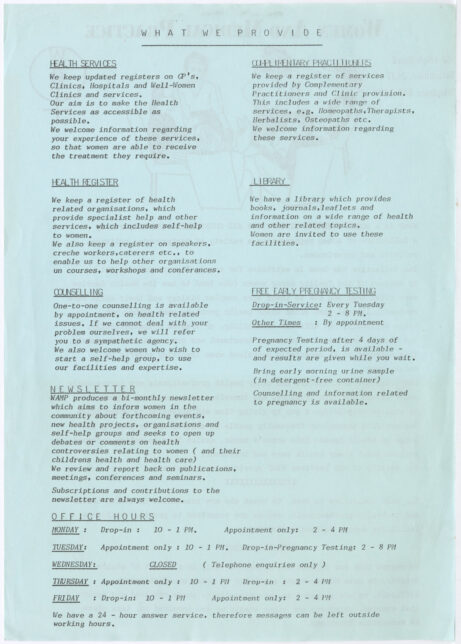
GEMMA Disabled Gays Guide
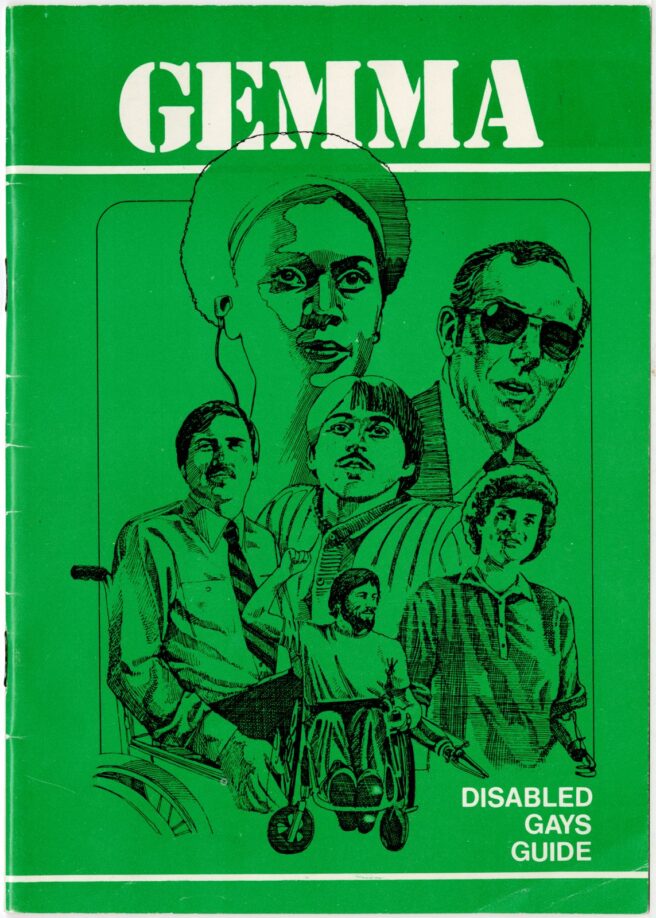
This booklet is a guide to London in 1983 for disabled gays.
Jordan’s Thoughts:
There are numbers and meeting places for pubs, bookstores, theatres, etc that are accessible for disabled gays. Additionally, there’s recommendations for books, publications, and services, as well as clubs and groups.
This was owned by someone who has crossed out things and added new information over time in blue pen. This is a fascinating insight into how people accessed the queer/disabled community before the internet. How would people have known that these spaces existed without this booklet, and how would they have known about this booklet?
I love to see the interaction with the material from someone who owned it, how they kept track of spaces they liked, or if they had closed down, moved address, or changed their phone numbers.
This reminds me of the GWL Three Decade project GWL Origins: Pre-Internet Community Building that I heard our archivist Mae Moss speak about recently.
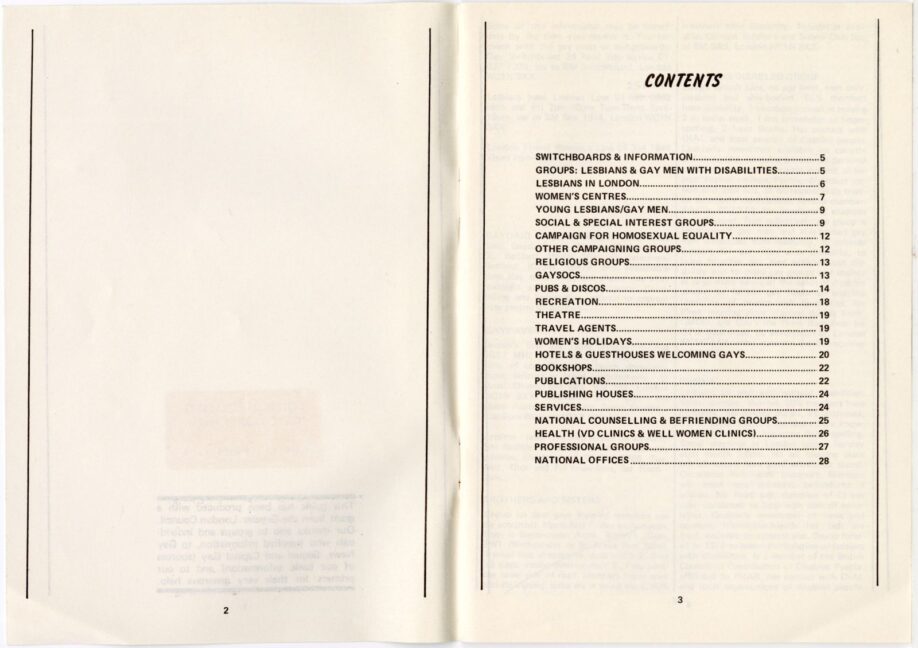
Living with The Menopause – Your Questions Answered
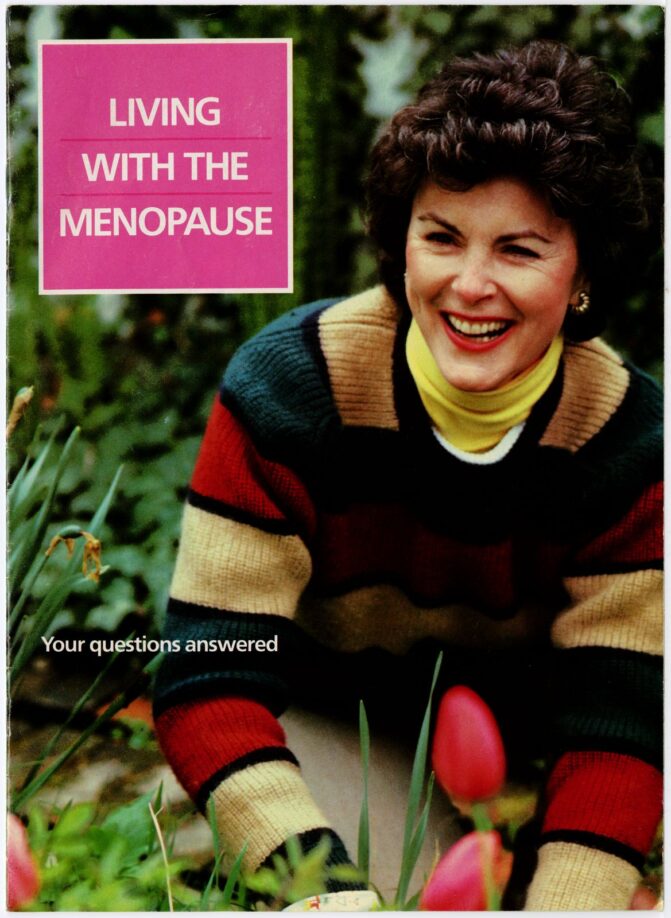
An educational booklet about menopause.
Jordan’s Thoughts:
This booklet is very indicative of its time, written and edited by men in the 1980s about ‘the menopause’. Interestingly, when pages provide medical advice, there is often a picture of a male doctor to accompany the text. I suggest that this was an attempt to provide and sense of trust and legitimacy to the advice, as the editors would have assumed that the image of a male doctor would be more likely to convey these things than a female doctor would.
Additionally, there is more than one section about how menopause effects the husbands of the women experiencing it, and how wives can help their husbands through this difficult time.
While this booklet has a lot of helpful and informative information, it takes a very heteronormative perspective. Not only assuming that women of menopausal age are married to men, but that people experiencing menopause identify as women, and that they have previously given birth and have raised children.
This is a great example of something written for women, by men, and the issues that arise when things are written about us, without us.
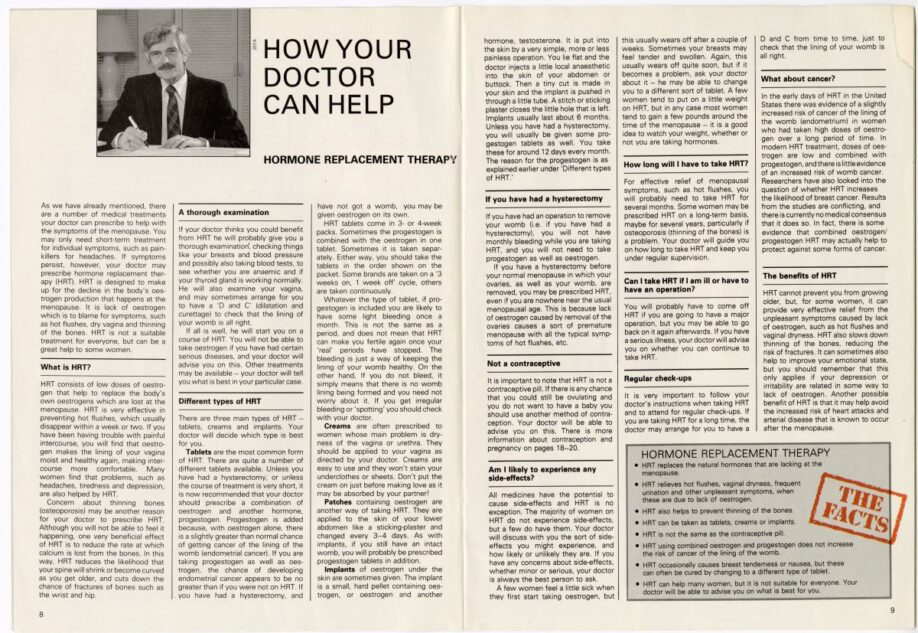
Women’s Health & the Politics of Premenstrual Tension
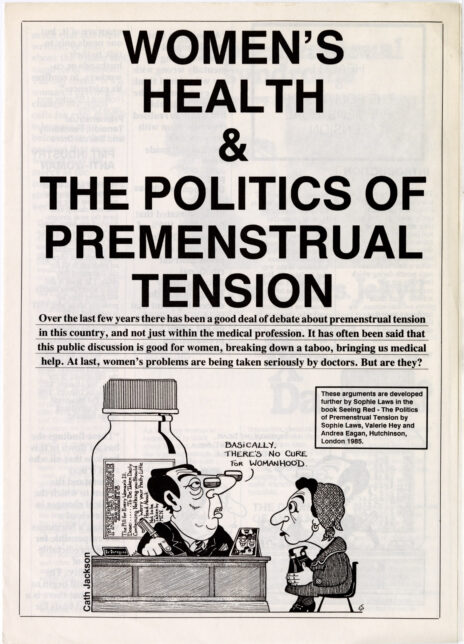
A broadsheet for women about the politics of premenstrual tension.
Olivia’s Thoughts:
I like this cartoon, as it sums up many women’s experiences of going to the doctor. There was an image of a male doctor sitting behind a desk which I included in the show (Living with The Menopause), which is in one of the publications produced by the mainstream health care system. When you put the two images side by side, this image satirizes the paternalistic and sexist norms and assumptions behind the other image.
Jordan’s Thoughts:
This broadsheet offers good critiques of the dominant views of the times. The two main narratives were that either women are being dramatic and using PMT as an excuse for ‘bad behaviour’, or they are so severely affected by it that they experience a period of madness or illness of which they have no control. However, this broadsheet offers that there are many varied experiences of PMT and acknowledges the complexities of the experience.
Interestingly, this broadsheet critiques the exact issues I have with the Living with the Menopause – Your Questions Answered booklet. They discuss how these types of literature are ‘sanctioned’ by men and centred around how women’s health affects their husbands.
This paper also has an article which questions whether we should view women’s cyclic changes as ‘illnesses’ at all. They suggest “we can accept that women are affected by our menstrual cycles in various ways, and that some of those effects may be unpleasant, without necessarily saying that we are therefore suffering from an illness and in need of treatment.” This article provides clear critiques of the societal view of menstruation and mood changes at the time. Overall, suggesting that we flow with the cyclic nature of menstruation, rather than pathologizing and struggling against it.
Overall, I think that this broadsheet is full of critical thinking, and progressive views that capture some of the complexities of Menstration from the perspective of people who actually experience it.
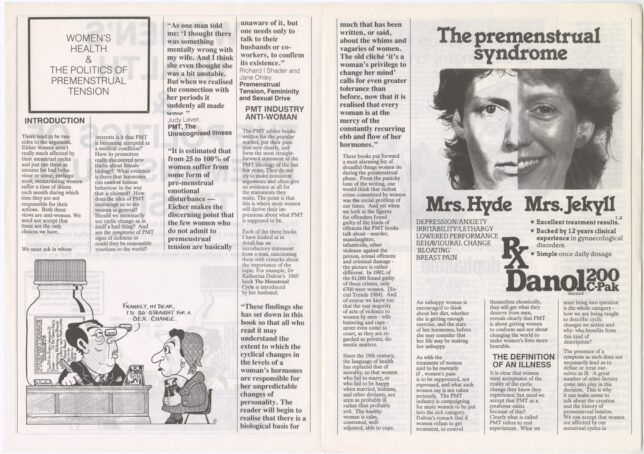
Power Makes Us Sick – Issue #1
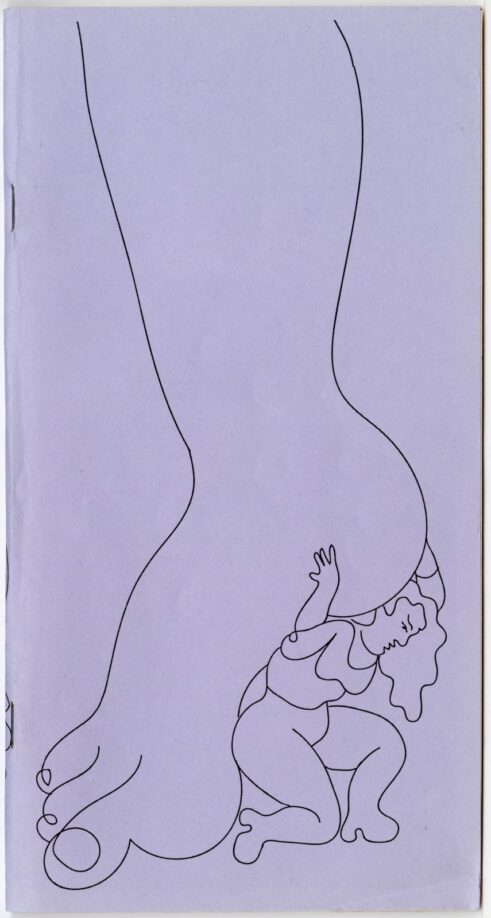
This publication "seeks to understand the ways that our mental, physical, and social health is impacted by inbalances in, and abuses of power."
Olivia’s Thoughts:
I love the title of this zine, as it points to structural issues and how inequality and mususe of power can affect people’s health and it has a clever acronym.
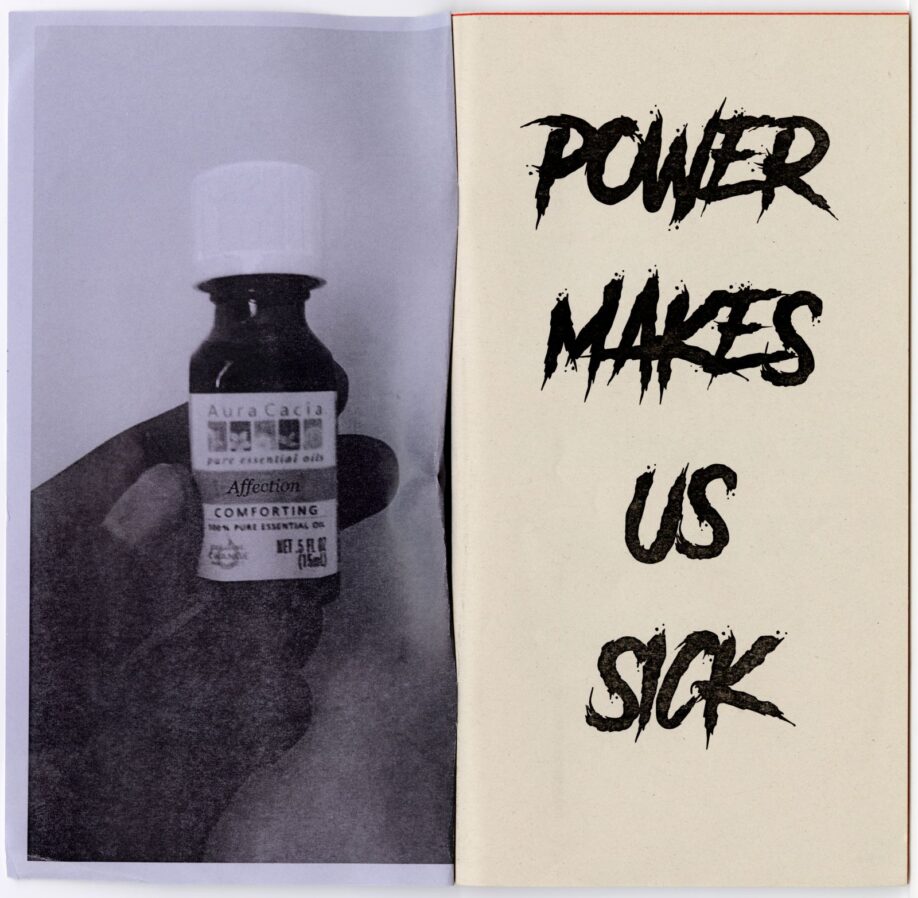
Power Makes Us Sick – Issue #3
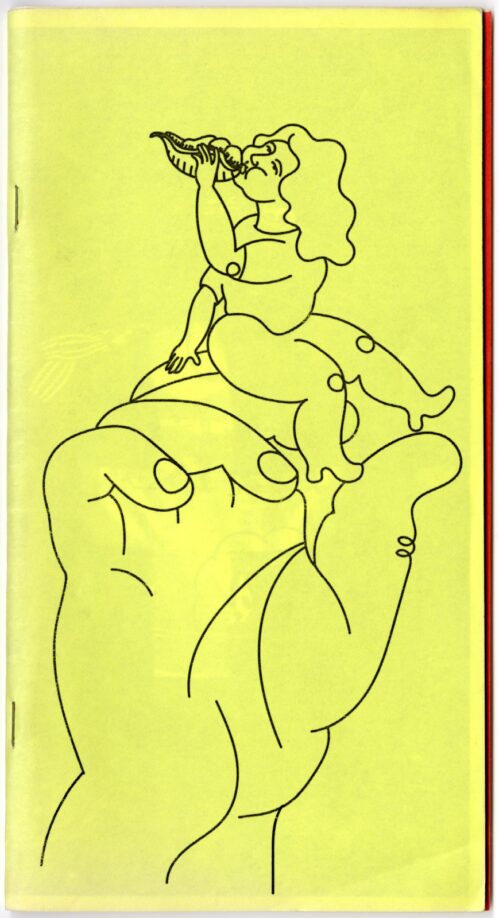
This publication "seeks to understand the ways that our mental, physical, and social health is impacted by inbalances in, and abuses of power."
Power Makes Us Sick Issue #3WHIC: The Newsletter – Special Black Women & Health Edition
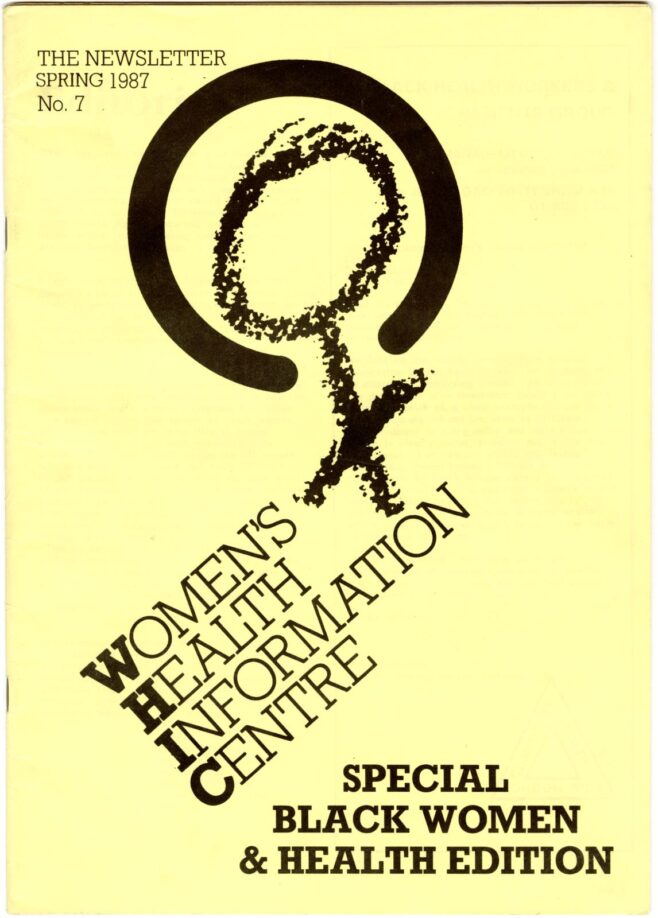
A special edition of The Newsletter, produced by the Women's Health Information Centre, that discusses how racism affects Black women's health.
Olivia’s Thoughts:
These newsletters are interesting as they show how organised the women’s health movement was at that time. The articles still feel very relevant. It is important to discuss how race and racism affect the health of women of colour and their experiences of healthcare. These discussions were very present during the Covid-19 pandemic, however we see here that there has been awareness of this problem within parts of the feminist movement for a long time.
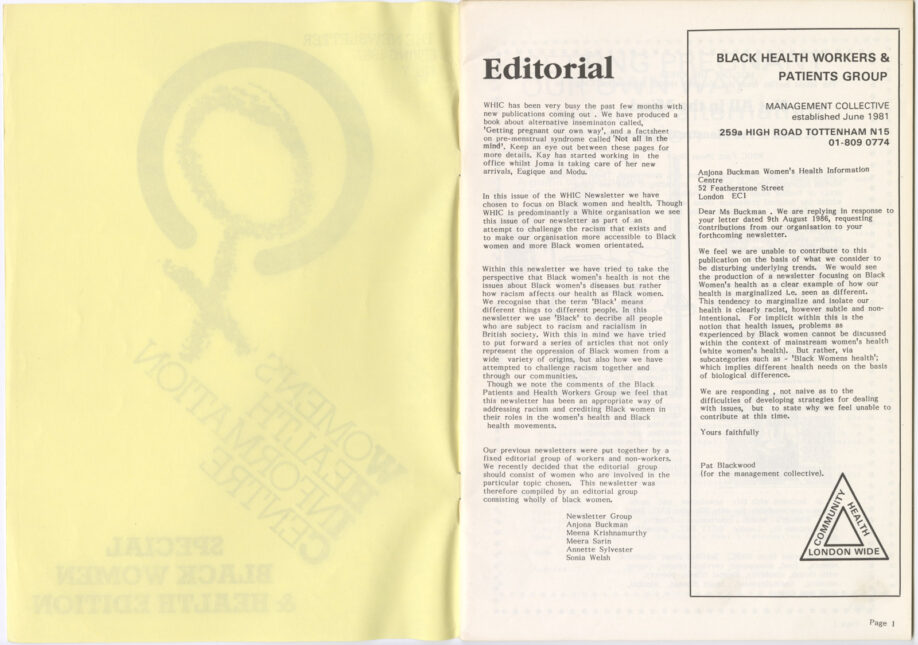
WHIC: The Newsletter, No. 5
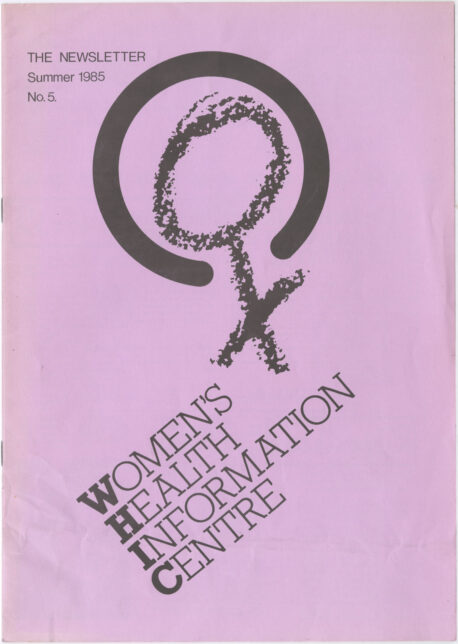
Volume 5 of The Newsletter, published by the Women's Health Information Centre.
WHIC: The Newsletter, No. 5Complaints and Disorders – The Sexual Politics of Sickness
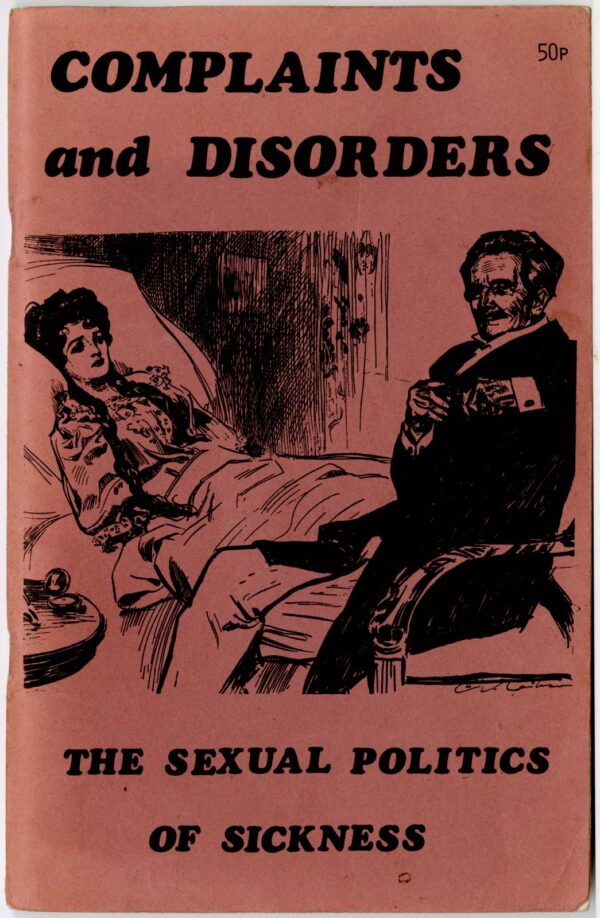
A pamphlet about the social role of medicine and how women were treated in the medical system in the 20th century.
Complaints and Disorders – The Sexual Politics of SicknessWitches, Midwives, and Nurses
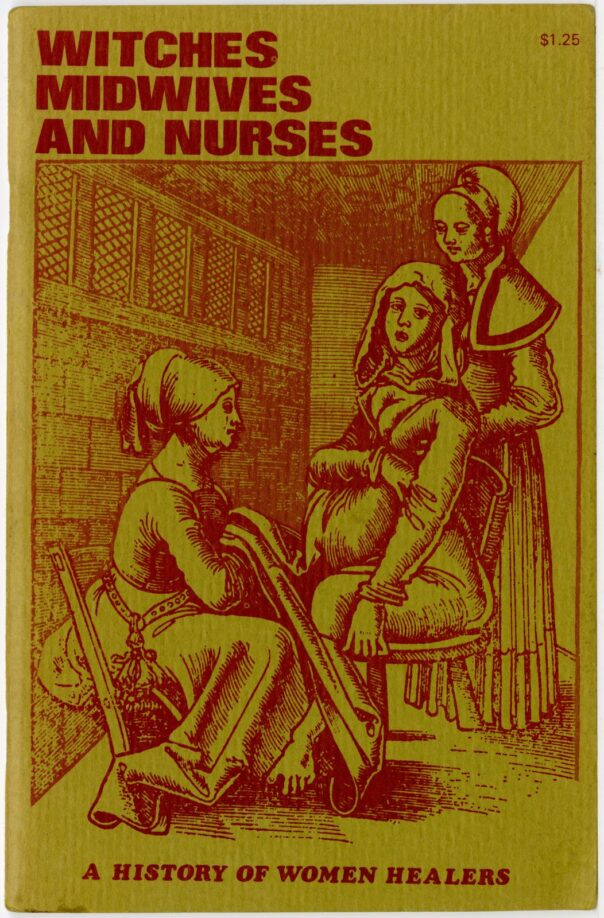
A booklet looking at the history of medical practice. This booklet delves into the suppression of female healers in the European witch hunts, and how that shapes the sexism in the current medical system.
Olivia’s Thoughts:
This is a feminist classic and has been very influential for the women’s health movement.
Well Woman – A Guide to Women’s Health
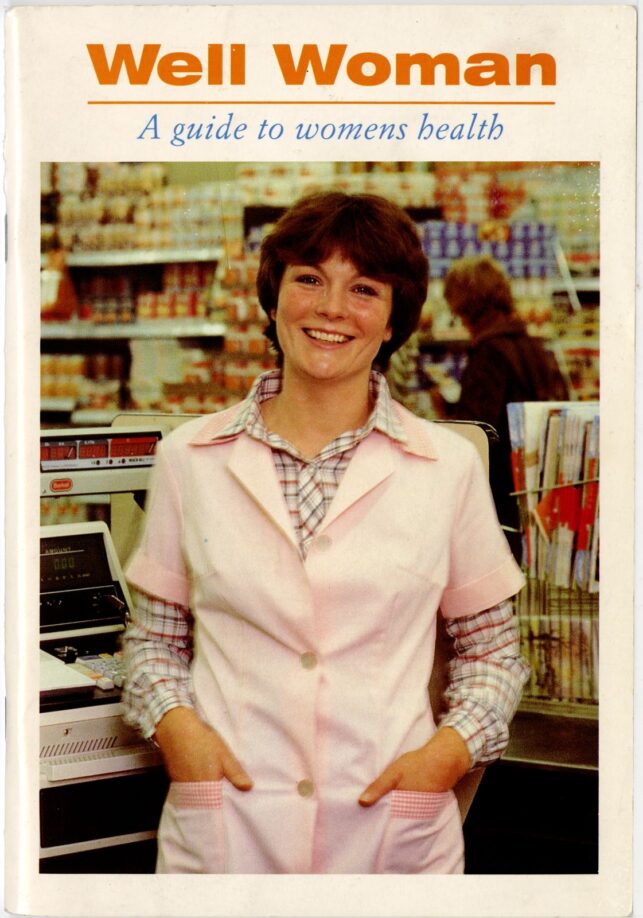
An educational booklet for women about their health needs. It covers a range of topics from self care, sexual organs, mental health, birth control, menopause and STDs.
Olivia’s Thoughts:
There was a particular image in here that I used of a rather depressed looking mother with a baby in a pram on an estate. This image says a lot about assumptions regarding who does the childcare.
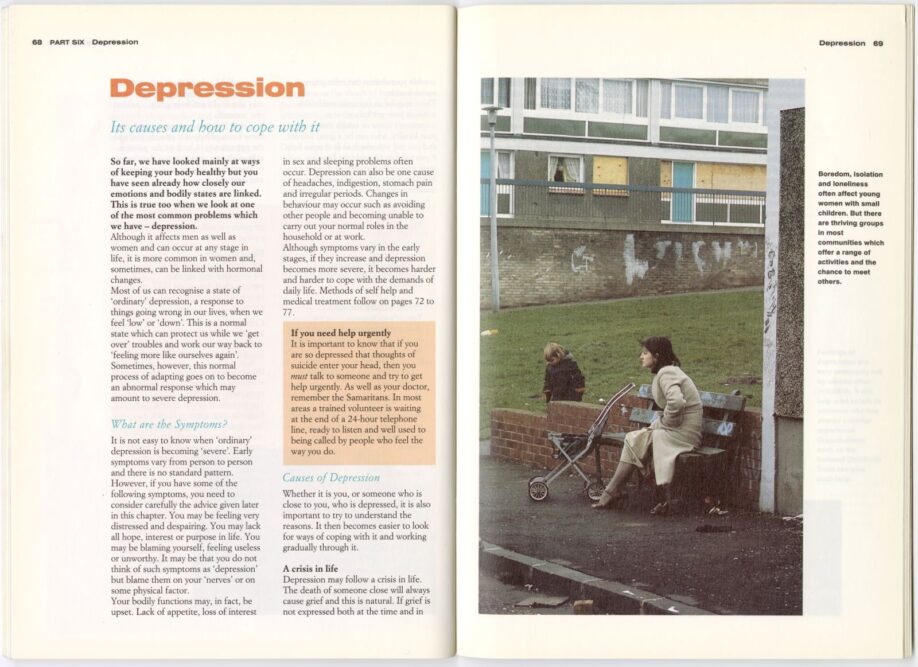
The Built Environment and Women’s Health
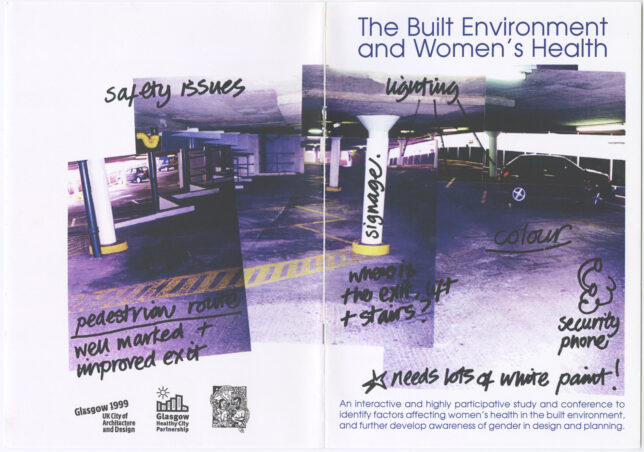
An interactive and highly participative study and conference to identify factors affecting women's health in the built environment, and further develop awareness of gender in design and planning.
Olivia’s Thoughts:
It’s important to talk about how women’s health is also affected by the built environment. At the time architecture and town planning were totally male dominated professions, so women’s needs were rarely taken into consideration in the design process for cities.
Trans Reproductive Justice – A Radical Transfeminism mini Zine
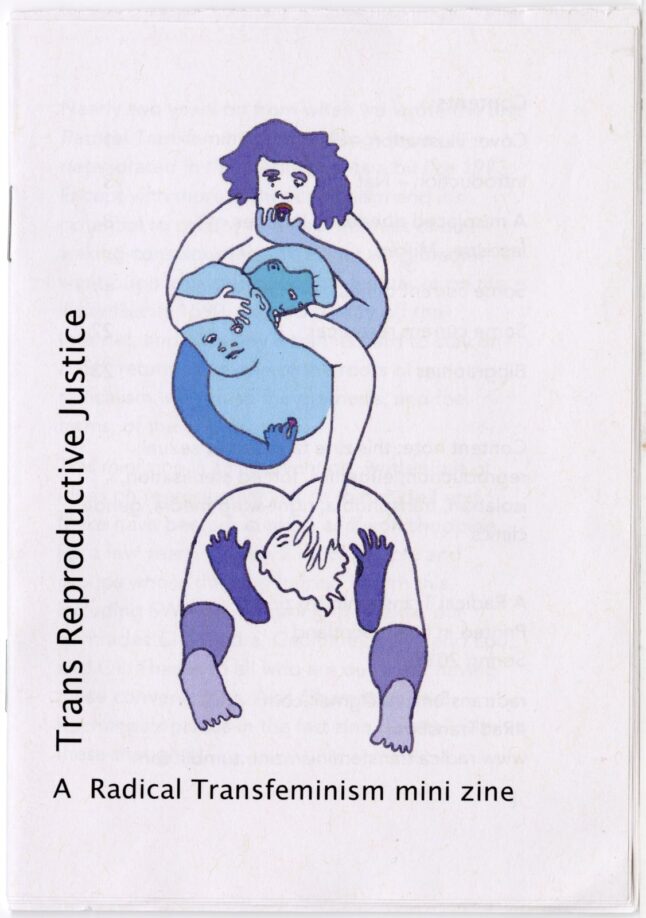
A zine about trans reproductive rights. This zine talks about sexual reproduction, eugenics, forced sterilisation, isolation, transphobia, right-wing media, gender clinics.
Olivia’s Thoughts:
I wanted to include this as I felt that it was important to make clear that the definition of women that I believe in includes trans women. Some of the health activist material from the women’s liberation movement in the 1970s is very gender essentialist and there is a strong focus on reproductive rights. That is of course important, but women’s health is not only about reproductive rights.
Women and Health – An experimental course on women’s studies in medicine
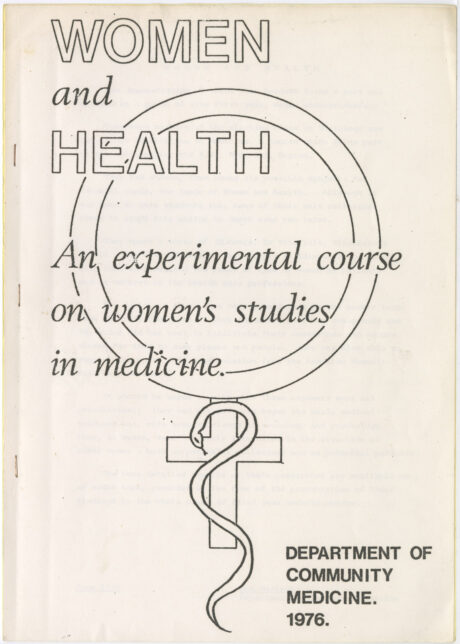
This is the outline of a course called Women and Health - An experimental course on women's studies in medicine.
Olivia’s Thoughts:
I wish I could do this course.

